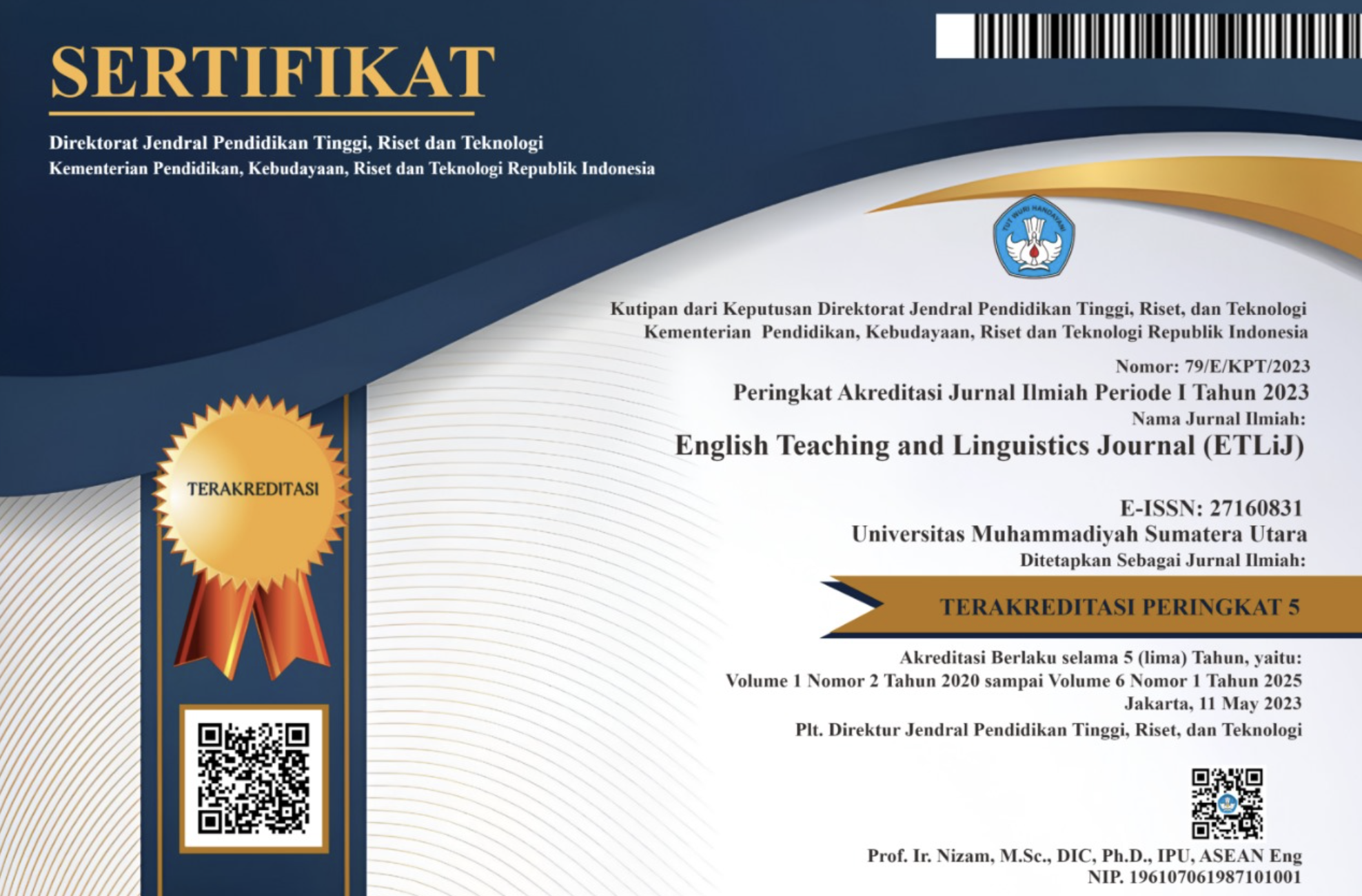Cultivating Ecological Sensitivity: How Ecolinguistics Enhances Descriptive Writing Skills at UPMI
Abstract
Keywords
Full Text:
PDFReferences
Burns, A. (2010). Doing action research in English language teaching: A guide for practitioners. Routledge. https://doi.org/10.4324/9780203863466
Capra, F. (2002). The hidden connections: Integrating the biological, cognitive, and social dimensions of life into a science of sustainability. Doubleday.
Creswell, J. W., & Poth, C. N. (2018). Qualitative inquiry and research design: Choosing among five approaches (4th ed.). SAGE.
Djuwari, D. (2021). Ecolinguistics in EFL classrooms: Enhancing descriptive writing through environmental themes. Indonesian Journal of Applied Linguistics, 11(1), 112–125. https://doi.org/10.17509/ijal.v11i1.34682
Goulah, J. (2020). Climate change and TESOL: Language, literacies, and the creation of eco-ethical consciousness. TESOL Quarterly, 54(1), 90–114. https://doi.org/10.1002/tesq.543
Han, X., & Yan, J. (2021). Ecolinguistic pedagogy in EFL writing: Cultivating ecological awareness through descriptive tasks. Journal of Language, Identity & Education, 20(3), 189–203. https://doi.org/10.1080/15348458.2020.1753195
Hyland, K. (2019). Teaching and researching writing (3rd ed.). Routledge. https://doi.org/10.4324/9781351116588
Kemmis, S., & McTaggart, R. (2014). The action research planner (3rd ed.). Springer. https://doi.org/10.1007/978-981-4560-67-2
Lestari, D. (2022). Localizing ecolinguistics: Indonesian EFL students’ reflective writing on environmental issues. Asian Journal of English Language Teaching, 32(2), 45–62.
Ma, L., & Liu, Y. (2023). Eco-poetry and empathy: A study of EFL students’ environmental sensitivity in China. Language Teaching Research, 27(1), 78–95. https://doi.org/10.1177/13621688211053012
Stibbe, A. (2015). Ecolinguistics: Language, ecology and the stories we live by. Routledge. https://doi.org/10.4324/9781315718071
Sutedi, D. (2020). Ecolinguistics in Indonesian EFL contexts: Transforming "rivers" into "living ecosystems." TEFLIN Journal, 31(2), 245–261. https://doi.org/10.15639/teflinjournal.v31i2/245-261
UNESCO. (2020). Education for sustainable development: A roadmap. https://unesdoc.unesco.org/ark:/48223/pf0000374802
Wang, H. (2020). Storytelling for ecological consciousness: A case study of EFL learners in Taiwan. System, 91, 102240. https://doi.org/10.1016/j.system.2020.102240
DOI: https://doi.org/10.30596/etlij.v6i2.25045
Refbacks
- There are currently no refbacks.

This work is licensed under a Creative Commons Attribution 3.0 License
ISSN: 2716-0831





